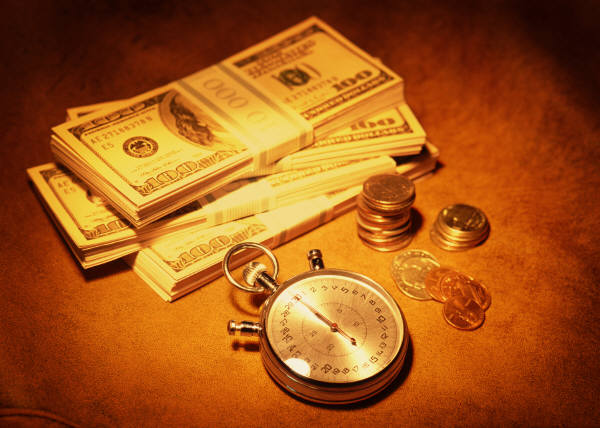As soon as Nihar Suthar got his first job, as a tutor for his college’s athletics department, he started saving.
“I have been investing since last year, but have been saving money from the time I started college in 2012,” says Suthar, who is now a consultant at the firm Roland Berger in Boston, helping clients figure out ways to cut costs or increase revenue.
To date, his savings, which he keeps in a brokerage account, have grown to $109,000, thanks to money he earned doing odd jobs at school, stockpiling cash from internships and banking a $15,000 gift from his dad for graduating early from Cornell University.
On the side, he writes inspirational books, netting him extra funds from royalty checks.
“In addition, I’ve been taking advantage of my 401(k) and the employer match,” says Suthar, 21. “I have close to $10,000 in there so far.”
Suthar, who has a degree in applied economics and management, doesn’t like the idea of losing his hard-earned cash. So he takes a conservative approach, which to him means “putting a large amount of money in investments that have a proven history of reliable returns,” he says.
Roughly 60% of his portfolio is in bonds — loans investors make to the government or corporations that have less risk but also less return than stocks. The rest is spread out over gold, exchange-traded funds that track international companies and individual stocks.
This year, his investments have grown 9.73%.That trails the S&P 500 stock index’s year-to-date price return of nearly 11%, as of late July. If you add in dividends, the S&P 500’s average annual “total return” since 1926 is 10.18%, according to S&P Dow Jones Indices.

So Suthar’s stock-light portfolio would need to gain about half a percentage point to match the broad market index’s longer-term return.
He thinks that the market may soon be headed for a correction, and is confident about how the assets are allocated.
“The real test will come once the market stops growing at such as fast rate,” he says
He’s also quite conservative in his spending. “I make my own meals often and don’t make very many big purchases besides my rent,” he says.
“I’m also single, which probably allows me to save more,” he adds. He saves $1,500 to $2,000 a month.
Despite his frugal ways, he still has $2,700 in “fun money” as a result of points earned on his credit card, which allow him to purchase everything from flights to hotel stays.
When asked if his investing strategy was too conservative, he stood firm. “Sometimes I think about how much more I could make, but I know it’s important to stay disciplined because when people start getting greedy, they lose in the market,” he says.
His best advice for other young Millennials: “Put away as much money as you can from an early age. It takes patience to grow a portfolio, but over time, the more you save, the more it grows.”
Russell Robertson, a certified financial planner and owner of ATI Wealth Partners in Atlanta, says that Suthar is definitely on the right track. He wonders, however, if the
young investor will remain disciplined in his conservative approach if the market turns.
For young Millennials looking for a decent return while keeping their risk profiles relatively low, he offers this advice:
Put aside extra for retirement: If you’re going to invest conservatively, you should probably save a little more. Robertson offers this example: “If you invest $100,000 and contribute $100 a month for 20 years at 5%, the money will grow to $320,000,” he explains. “If you only earn 3% interest on that money, the value of the nest egg will drop by $100,000.” Simply put, you will have to almost double what you are saving a month with a 3% yield.
Get a realistic picture of the market: Robertson says conservative investors like Suthar should be careful about expecting high returns while investing in traditionally low-yielding assets. “For instance, if you’re investing in fixed-income U.S. Treasurys, expect returns to be equal to the yield, which is currently 2½ to 3%,” Robertson says. “My concern is that he seems to think that you can ‘guarantee’ the portfolio will return 6% or 7% while taking little risk.”
Diversify your conservative investments: In a low-interest rate environment, high yields are difficult to find. “Given that the price of bonds has been going up for the last 30 years and the Federal Reserve has been hiking interest rates, that can tend to make the value of bonds go down,” advises Robertson. He applauds Suthar for investing in other assets like gold. Another tip is to consider dividend-paying stocks like AT&T, currently yielding 5%, since those tend to be less volatile and pay out more than what U.S. Treasury bonds yield.
Define the purpose of the money: Right now, it feels like Suthar is more focused on the idea of investing conservatively. But that might not be appropriate for what he wants the money to do. “Is any part of this money going to be used in a few years to buy a home or start a family? Or is all of the money going toward retirement?” Robertson asks. If it’s the latter, and he’s not going to touch the money for 20-25 years, Robertson advises investing in 60% equities and 40% in fixed-income assets. “I expect the return on that to be at least 5% over the next 10 years given the current market valuations,” he says.
Speak to a certified financial adviser: Robertson agrees that Suthar doesn’t necessarily need an adviser to run his money, but talking to one can help put things into context.
“Working with an adviser can help him create specific goals with target dates, re-allocate his funds toward a growth strategy and give him a more solid foundation from which to make these investment decisions,” he says.
Source: USA TODAY Published 6:59 a.m. ET Aug. 2, 2017 |









